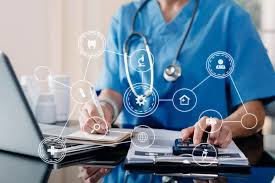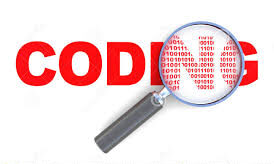
What Is Medical Coding ?
Medical coding is the process of translating healthcare diagnoses, procedures, services, and equipment into standardized codes. These codes are used for billing purposes, to track patient outcomes, and for healthcare statistics.
The most common coding systems include:
- ICD (International Classification of Diseases): Used to code diagnoses and conditions.
- CPT (Current Procedural Terminology): Used to code medical, surgical, and diagnostic services.
- HCPCS (Healthcare Common Procedure Coding System): Used for billing Medicare and other health insurance programs, particularly for services not covered by CPT.
Medical coders review clinical documents and assign appropriate codes to ensure accurate billing and compliance with regulations.
Where should we do Medical coding program?
You can enroll in training programs provided by several platforms, including:
Community Colleges or Vocational Schools:
Many colleges offer diploma or certificate courses in medical coding.
Online Courses:
Online platforms like AAPC, AHIMA, Coursera, and Udemy offer flexible courses that you can take at your own pace.
What is the role of medical coder?
1. Translating Medical Records into Codes – Medical coders review patient records, including diagnoses, treatments, and procedures, and convert this information into standardized codes using coding systems like ICD, CPT, and HCPCS.
2. They ensure that all medical codes are correctly assigned and reflect the healthcare services provided. Accurate coding is essential for billing, healthcare reporting, and maintaining patient records.
3. Supporting Billing and Reimbursement – Coders play a key role in the billing process. By assigning the correct codes, they help ensure that healthcare providers are reimbursed by insurance companies, Medicare, or Medicaid. Proper coding reduces the risk of claim denials or delays in payment.
4. Medical coders must stay up-to-date with current coding standards and healthcare regulations. They ensure compliance with federal laws, insurance policies, and industry standards to avoid legal issues and penalties.
5. Medical coders often communicate with doctors, nurses, and other healthcare professionals to clarify medical notes or gather additional information for accurate coding.
6. maintaining Patient Privacy – Coders handle sensitive patient information, so they must adhere to confidentiality and privacy regulations, such as the Health Insurance Portability and Accountability Act (HIPAA) in the United States.
How to get Practical Experience in Medical Coding?
Internships
Many coding courses offer internships or practical experience in healthcare settings. Internships help you understand real-world applications of medical coding.
Entry-Level Positions:
Look for entry-level roles such as medical records technician, coding assistant, or billing clerk in healthcare settings like hospitals, clinics, or insurance companies. These roles allow you to practice your coding skills and gain valuable experience.
Stay Updated with Continuing Education?
Medical coding is an evolving field, with frequent updates in coding systems (e.g., ICD code revisions). You need to stay current by:
- Continuing Education Units (CEUs): Maintain your certifications through CEUs by attending workshops, webinars, and conferences.
- Joining Professional Organizations: Membership in organizations like AAPC or AHIMA provides access to resources, networking, and learning opportunities. These organizations often host conferences and offer discounts on coding materials and exams.
What you become after doing Medical Coding?
With experience and additional certifications, you can explore specialized or higher-level roles:
Medical Coding Auditor:
Reviews and ensures the accuracy of coding.
Compliance Officer:
Ensures that the medical coding and billing process complies with legal and regulatory standards.
Medical Coding Consultant:
Provides expert advice to healthcare providers on coding and billing practices.
Medical Coding Manager:
Manages a team of coders and oversees coding operations.
Health Information Manager:
Oversees the entire health information department in a healthcare facility.
Do Medical coders also have remote work opportunities?
Many medical coders, especially those with experience, can work remotely. Several healthcare facilities and outsourcing firms offer work-from-home opportunities, especially for certified and experienced coders.




